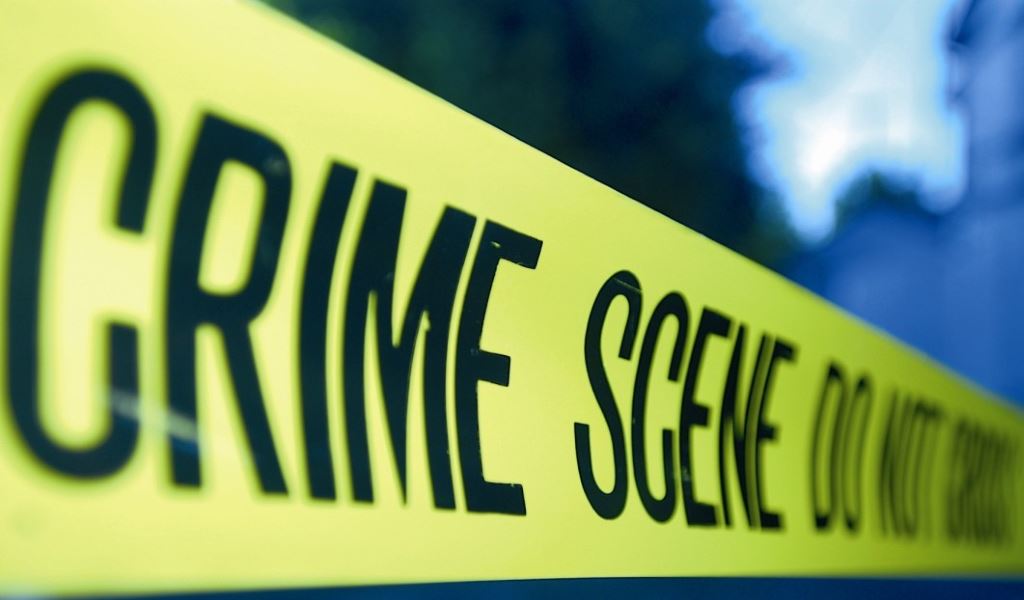BBC Report on City Is Real
For those who know city's neighborhoods, the documentary echoes our experience.
Although I hadn’t yet seen the the BBC report by Louis Theroux, “Dark States: Murder in Milwaukee,” the news of it was hard to miss. Walking into any gas station or coffee house in town you’d see the disapproval of residents (“documentary… sparks outrage”) covered as a front page story.
Many felt the version of Milwaukee portrayed through the film’s gritty perspective was negative. Here’s the thing, though, the footage doesn’t lie.
I’ve lived in Milwaukee all my life in a couple different parts of town. Moving around offered a taste of various neighborhoods in the city. So I’ve always known Milwaukee had a gun violence problem, and didn’t need school to teach me. On occasion, I’d hear shots off in the distance from my childhood home.
I grew up routinely driving past countless crude roadside memorials. You could usually tell which ones were from car accidents and which were shootings. Car accidents almost always had twisted, blackened metal nearby, while the memorials to shootings were more intuitive. The lonely sight of a dirty teddy bear strapped to a street light staring out at nothing. Normally the victim was identified, with the last words from nameless loved ones.
I’d never experienced an urban war zone before, where the air seemed filled with bullets. It felt as if any one of the rounds could stray and strike my aunt’s house. I could make out two distinct firing positions with at least two parties on either side. After several seconds, the exchange ended with something automatic firing what seemed like 800 rounds a minute or better. My heart beat harder, and then the night’s sounds segued into distant sirens closing towards the neighborhood.
Friends of mine have similar stories, a few with closer brushes to the violence. A couple were shot at while minding their own business in Washington Park early one evening. Others lost friends, and one was ten years old when he somehow “held my first grenade,” as he described it to me. A childhood friend of mine died a few years ago after being shot. Just a couple months ago, someone fired a pistol half a block away while I sat at a stop sign.
The point being that although it’s a dreadful issue, it’s Milwaukee’s reality. Many criticisms of Theroux’s film seem to center around the question of whether the documentary was too negative and should have presented the city in a better light. Particularly, interviews with a mother whose shotgun never leaves her side disturbed many. A similar thing happened after the 2016 Milwaukee riots, people were fed up with the coverage. Maybe they got fatigued from all the “negative” headlines.
Another criticism was the BBC film didn’t focus enough on active anti-gun violence programs in the city. But however well intended those initiatives are, the problem still remains. We shouldn’t kick, scream and cry over what one journalist was able to capture on film. Rather, community leaders should perhaps see it as the sobering, outsider’s view we all needed. While the footage might make you uncomfortable, it’s just another day for many in Milwaukee.
Isiah Holmes, is a writer and videographer.
Op-Ed
-
Wisconsin Candidates Decry Money in Politics, Plan to Raise Tons of It
 Dec 15th, 2025 by Ruth Conniff
Dec 15th, 2025 by Ruth Conniff
-
Trump Left Contraceptives to Rot; Women Pay the Price
 Dec 8th, 2025 by Dr. Shefaali Sharma
Dec 8th, 2025 by Dr. Shefaali Sharma
-
Why the Common Council’s Amended Budget is Good Policy for Milwaukee
 Nov 20th, 2025 by Alds. Marina Dimitrijevic and Russell W. Stamper, II
Nov 20th, 2025 by Alds. Marina Dimitrijevic and Russell W. Stamper, II























I always love to hear from younger voices in our community. Isiah, you stated that you “hadn’t yet” seen the doc before you already caught whiff of the disappointment with it among many in the community. Have you watched it yet?
Thank you for stating early that you had not watched the piece prior to printing. It’s likely just as relevant a story to discuss interpretations of others who have not seen it either, and their reactions to each other.
I was recently made aware of a book titled “How to talk about books you haven’t read yet”, my understanding is that in places the book values group “evolved” understandings as perhaps more important than the source material. Although, I have not read it yet.
I did watch the BBC segment, and the three non-spoiler things that I felt notable were all from interviews w/ a police officer. The first was a comment which seemed to suggest that Black Lives Matter activism is making their job harder, this would be the third time I’ve noticed an MPD officer imply such things without any expansion on the concept.
The second was the statement that “people need to stand up” (paraphrase?), without any expansion on what that could/should mean in practice. What does it mean to “stand up”?
The third was that some of the shootings we experience are resulting from “Facebook beefs”. I’ve suspected that there is/was probably online drama at the root of some violence, but I did not know any data was being collected regards this. I’m sure we’d all like to know how significant some stupid internet slights have been/can be.